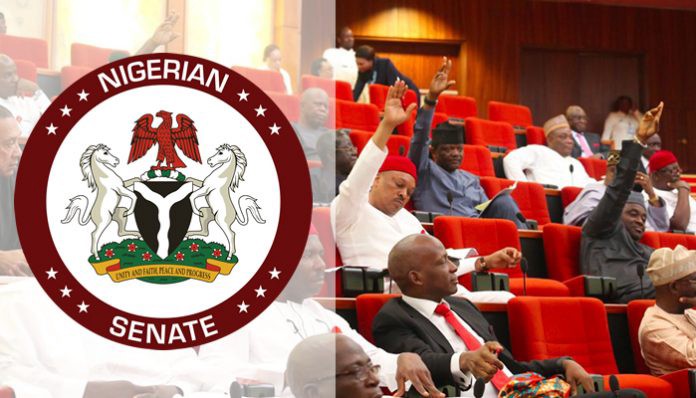After many weeks of delay, the Senate announced on Wednesday it would open public hearings on the controversial tax reform bills forwarded to the National Assembly in October 2024 by President Bola Tinubu, next week.
The four bills, Nigeria Tax Bill; the Nigeria Tax Administration Bill; the Nigeria Revenue Service (Establishment) Bill; and the Joint Revenue Board (Establishment) Bill, are to reform tax administration, collection and operation in Nigeria, according to the President.
On Wednesday, the Chairman of the Senate Committee on Finance, Sen. Sani Musa, whose committee will conduct the public hearings, said the two-day sessions would take place on February 24 and February 25.
He explained that the decision of the Senate to commence the hearings followed a series of consultations held with stakeholders across the country to iron out areas of concern in the bills.
Musa stated, “We have had an engagement with a lot of stakeholders before arriving at where we are today, and I believe that the public hearing is going to go on smoothly.
“Wherever the grey areas are, Mr President has said it, times without number, that he is not going to interfere. It is our duty as legislators to do the needful for the good of this country.
“We are all representatives of different tribes, religions, geographic histories, but we are Nigerians. And what we will work towards giving Nigeria are laws, legislation that will put us on track economically, and by the grace of God, we will succeed.”
The Nigerian Tribune recalls that the bills had successfully passed first reading at the Senate before opposition tightened against their progress at the second reading stage.
Although the bills eventually passed second reading on a divided Senate floor, a move by the Legislature to begin public hearings later stalled.
Northern senators, led by Sen. Ali Ndume (APC, Borno-South), loudly opposed the bills, apparently receiving backing from the Nigeria Governors’ Forum that had also kicked against the bills.
One of the grounds for the opposition to the bills, according to Ndume, was that Nigerians across the states were not consulted, in addition to saying that the timing was wrong.
“Does it say it’s a Presidential Bill or is it supposed to be a Presidential Bill? When you say it’s an Executive Bill and you don’t have the buy-in of the Executive of the State, is it complete? That is where the problem lies.
“We’ve been doing this to the point that they now call us a rubber stamp,” he had argued.
The Senate, late in December, named a panel headed by its Minority Leader, Sen. Abba Moro, to interface with a team from the executive led by the Attorney General of the Federation (AGF) and Minister of Justice, Mr Lateef Fagbemi, to iron out the areas of disputes on the bills.
Addressing reporters on January 14, 2025, after a meeting of the two sides, Moro notified Nigerians that progress had been achieved in streamlining the contentious provisions in the bills.
“We interfaced with the AGF, the Revenue Mobilisation Allocation Fiscal Commission (RMAFC) chairman, and the Federal Inland Revenue Service (FIRS) chairman to evaluate the contentious points regarding the tax bills.
“We have agreed to streamline the processes to ensure the final law serves the interest of all Nigerians.”
Speaking further on Wednesday, Sen. Musa confirmed that modalities had been concluded for the public hearings to take off.
He told reporters that every segment of the country was free to attend the hearings and offer their suggestions, besides the key agencies and officials of the government already invited.
The lawmaker spoke more: “We have invited a lot of agencies. Just to mention a few of those agencies that we believe are key to this; like the Federal Minister of Finance, the Coordinating Minister of Economy, we invited the Federal Minister of Trade and Investment, we have invited the Attorney General of the Federation.
“We have also invited the Minister of Petroleum because you know there is this issue of cash calls, like the revenues, the royalties coming from the oil and gas sectors.
“We are inviting the Chairman of the Federal Inland Revenue Service, and we are also inviting the Statistician-General of Nigeria, that’s I mean the National Bureau of Statistics so that he will be able to come and give us his own submission. We need it.”
